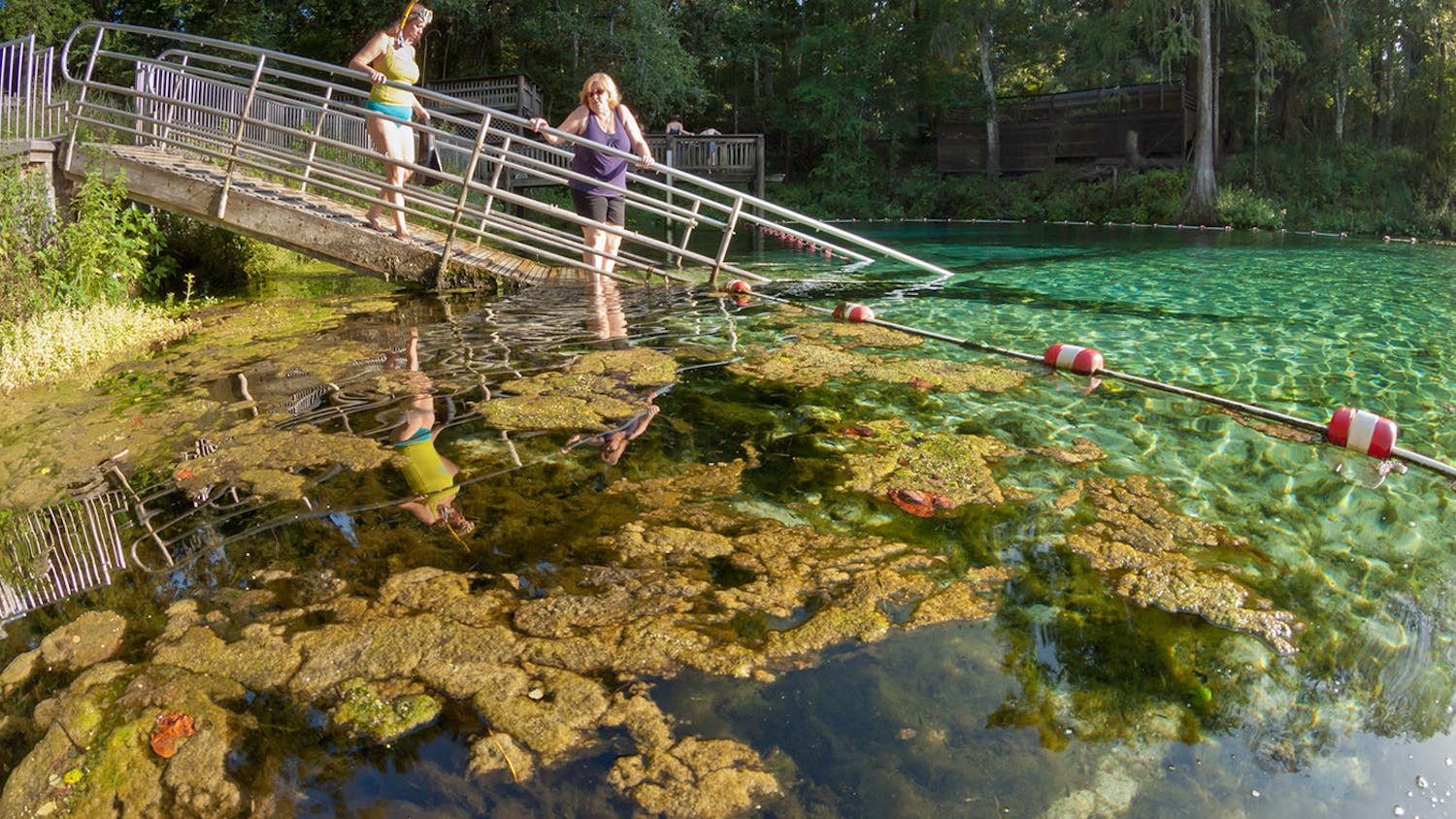Water resources in Florida are similar to a college student’s bank account — overdrawn.
This was the message the Florida Springs Institute gave as part of its Give Springs a Break event this weekend at Ginnie Springs in High Springs.
“We have overtapped our resources everywhere,” said FSI founder Bob Knight, who spoke to the more than 60 college students Saturday.
The FSI hosted Give Springs a Break to encourage students to get involved in water conservation efforts in Florida. The students camped Friday and Saturday nights, getting to know each other while swimming, hiking and tubing.
UF students have been coming to Ginnie Springs for years, said Allison Lewis, president of the UF chapter of American Water Resources Association.
The weekend-long event was a chance to expose students to the beauty of the water, said Lewis, a 24-year-old UF environmental engineering graduate student.
“This is our spring,” she said. “When you appreciate it, you’re going to want to take care of it.”
There are more than 1,000 natural springs in Florida, most of which follow major rivers. The Floridan aquifer system lies below the ground and spans every area of North Central Florida, pumping water into the springs and into our faucets.
“Our groundwater is no longer clean, and it’s no longer abundant,” said institute volunteer Debra Segal, adding that the scarcity is due to two main problems: overpumping and pollution.
Segal said wastewater treatments, agriculture and cattle operations — in addition to individual water overuse — have polluted Florida’s water with nitrate-nitrogen.
One solution is a restoration wetland planned for 2015 that will use natural treatment methods to improve water quality in Alachua Sink and the Floridan Aquifer, Segal said.
Called Paynes Prairie Sheetflow project, the 125-acre wetland will look like a gator head from an aerial view and will include hiking trails and lookouts.
But it’s only a small step, Lewis said. The community, especially college students, must continue to make sustainable change.
“We are the future decision makers,” she said. “It’s so important for us to come together.”
[A version of this story ran on page 4 on 4/7/2014 under the headline "Springs event promotes conservation"]





